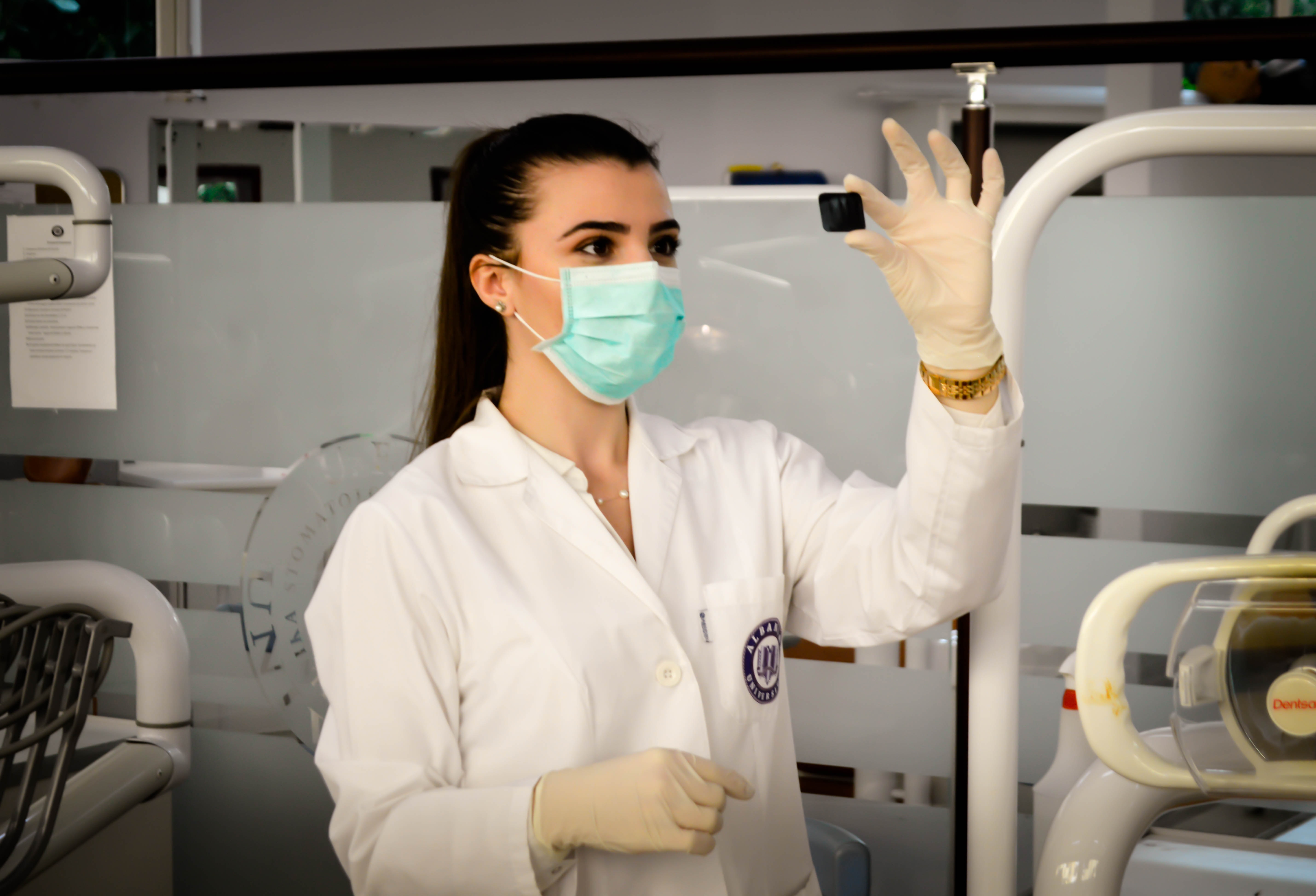The pioneering scheme – thought to be one of the first in the UK – is proactively exposing would-be nurses and allied healthcare professionals (AHPs) to technology already being used at Huddersfield Royal Infirmary and Calderdale Royal Hospital, in Halifax, and in the community, with the aim of creating digitally-savvy clinicians, who can then become the digital champions of the future.
It has evolved thanks to a collaboration between senior leaders at the university, the Calderdale and Huddersfield NHS Foundation Trust (CHFT), which runs the hospitals involved, and The Health Informatics Service (THIS) - which is hosted by CHFT - and whose digital expertise has helped to make the trust one of the most digitally mature in the country.

Bethen Hebberd, a Senior Lecturer and Head of Practice Based Learning (AHPs and Midwifery), at Huddersfield University says:
“The innovative, interdisciplinary digital skills placement is a fantastic example of future-focused practice education."
“It allows our students to gain insight into how data is used to inform service delivery and how it’s aiding a variety of aspects of modern healthcare practice. "
“The placement is designed to make the students more confident in exploring the advances in digital healthcare, which should aid in creating the healthcare professionals that are required in the future. The opportunity to apply digital skills in a healthcare context in an engaging way will, in my opinion, be invaluable.”
The ultimate aim of what is being seen as an organic pilot scheme is to add breadth and depth by extending the duration of the placements, currently five days, and the clinical disciplines participating in them. The next step will be to include student midwives and physiotherapists before extending it further.
Digital solutions improving patient care and safety
This programme is one of several digital healthcare solutions to improve patient care and safety already well embedded in the day-to-day work of clinicians at the Trust, brought about as a result of collaborations between CHFT leaders and clinicians and our IT and project management specialists.
The placements involve the use of Nervecentre, CHFT’s observation model to record at the bedside, from which the students are shown how it documents digitally onto MEDICUS, which then sends data to the West Yorkshire Critical Care Network to improve practice. ICU also uses MEDICUS to submit data to ICNARC (Intensive Care National Audit & Research Centre) for a similar purpose.
Exposing the students to Nervecentre and MEDICUS, enables the Trust to illustrate how outreach gets alerts of any deteriorating patients enabling them to respond on a timely basis.
By reviewing the information to hand, clinicians can try to prevent ICU admissions, but if an admission is necessary it can be expedited with the ultimate aim of improving recovery times. The alerts come through on a mobile device and clinicians can access all patient information immediately through these devices.
With this kind of technology already embedded at the heart of CHFT’s daily operations, the benefits of the training placements are threefold:
- It enables newly qualified nurses to ‘hit the ground running’ as they have already been exposed to the technology they will be using day-to-day.
- It creates digitally savvy clinicians that can become digital champions and catalysts for the future by embracing digital health.
- It emphasises the importance of data in the treatment of patients.
Another outcome of the placements is to involve the students in developing further training concepts, as well as gaining their ideas and insights into their exposure to digital health to help shape the future of nurse education. This is done via evaluations by each participant in collaboration with their course tutor.
In the light of the imminent Phillips Ives Review report, we think this is placing the students at the forefront of what the review is looking to achieve, especially its focus on the person-centred element of nursing in a place-based health and social care system, and the emerging technologies and opportunities, including remote care.
Enlightening experience for staff and students
The students are placed with the critical outreach team, the respiratory team in the community, and with district nursing teams. It exposes them to real time documentation coming from patients’ homes and illustrates how that can benefit multi-disciplinary team scenarios.
It also exposes them to virtual consultations, looking at ways of seeing patients in their own home, thus reducing the need to travel to hospital, especially for patients with chronic pain, while patients avoid the risk of being exposed to infection and becoming deconditioned by staying in bed.
In addition to enlightening the students, it gives our own specialists the opportunity to take stock of practices that have become business as usual, adding context to their work and, hopefully, increasing their appetite for digital healthcare today and what it can provide in the future.
From the Trust’s perspective, it sees value in the placements for staff recruitment and retention. Those students who complete placements are enhancing their chances of finding work in the trust as they already understand its technology and digital ethos.
For the clinicians already working for the trust, it illustrates how they are at the vanguard of digital healthcare, courtesy of a £3m investment in eight projects under the banner of the Scan for Safety programme, sector-leading work on using technology to reduce health inequalities, elective treatment backlogs and waiting lists, and a first-of-type integration of the Cerner (now Oracle) Millennium EPR prescribing and EMIS pharmacy stock control systems to minimise human error and streamline workflows.

‘The future is growing for digital in nursing’
The placements include an introduction to the role of Chief Nurse Information Officer (CNIO), presentations on how we use data to improve and shape services for the future and build on quality improvements such as monitoring documentation standards.
The health inequalities team brief on how it has used data to reduce waiting lists and backlogs for the most vulnerable patients and those from deprived backgrounds.
Louise Croxall, CNIO, says:
“The future is growing for digital in nursing and it is opening that up for students to experience and hopefully choose as a career path. It’s encouraging the students to look at digital and hopefully they can bring ideas of digital solutions in the future.”
And finally, we see value in the placements for the university, which is putting itself in a unique position of such close co-operation with the trust on its doorstep, in addition to producing graduates with unrivalled knowledge of what digital can achieve in healthcare.
Creating digital champions
A golden thread running through the digital placement scheme is an ambition to create digital champions across all divisions and wards at CHFT’s two hospitals and its community teams.
We believe the placements are planting the seeds for the future in this respect by illustrating the opportunities, and creating an interest in digital solutions, at the very beginning of a clinician’s career.
The students are also asked to complete follow-up assignments. For example, the initial cohort has produced a quality improvement project arising from their time with the Speech and Language Therapy (SALT) team, which saw them tasked with creating a leaflet illustrating best practice for staff conducting virtual consultations with patients with communication difficulties, which sits alongside CHFT’s drive to tackle health inequalities.
Virtual presentations to all the nursing cohorts at Huddersfield University share the scheme’s content, aspirations and develop traction.
We also believe that as the scheme evolves, it could help digital and/or IT management students studying at the university to better understanding healthcare technology, with a long term aim to include them on placements, giving them a perspective, they might not otherwise experience.
The scope of benefits is wide ranging and includes:
- Improved staff recruitment and retention within CHFT.
- Less time spent on training when staff begin working in a CHFT hospital, freeing up more time for patient care.
- A potential positive impact on Huddersfield’s socio-economic position by keeping well-trained and knowledgeable staff in the region where they trained.
This an evolutionary process that we intend to develop to include all healthcare disciplines and share the model with NHS colleagues to include other trusts and universities to contribute to the creation of a national blueprint for digital health education and training.
Innovation and collaboration
In addition to CHFT, we enable new, empowering, efficient and secure communications and IT services for clients including other health trusts, GP practices, laboratories, hospices and care charities. If you are interested in working with us, get in touch here.

Subscribe to Informatics Insights & Advice
Take advantage of the latest news and information from The Health Informatics Service. Read about our innovative work with healthcare clients across the UK and get our expert insights and recommendations to help and inspire your work.

